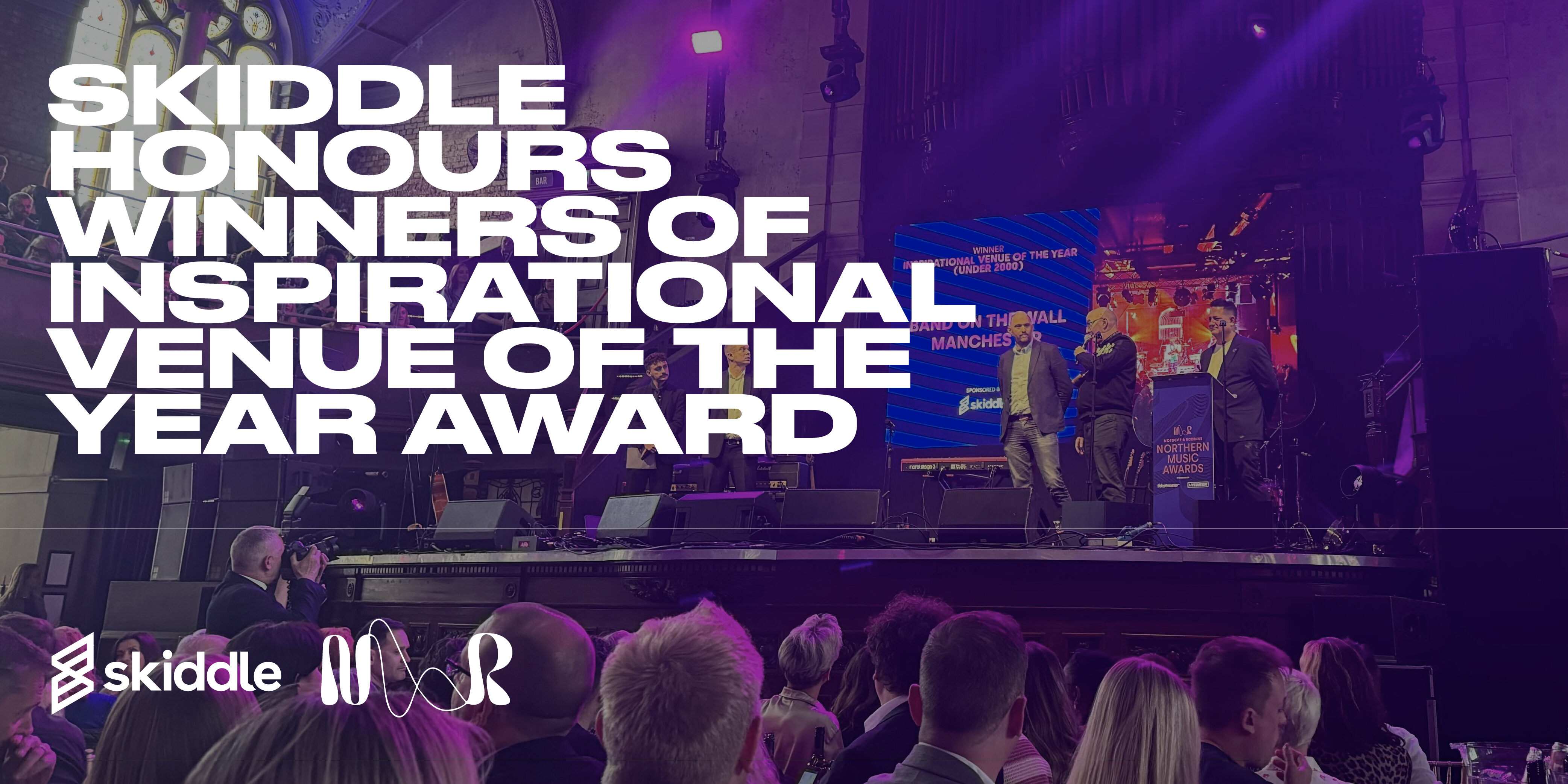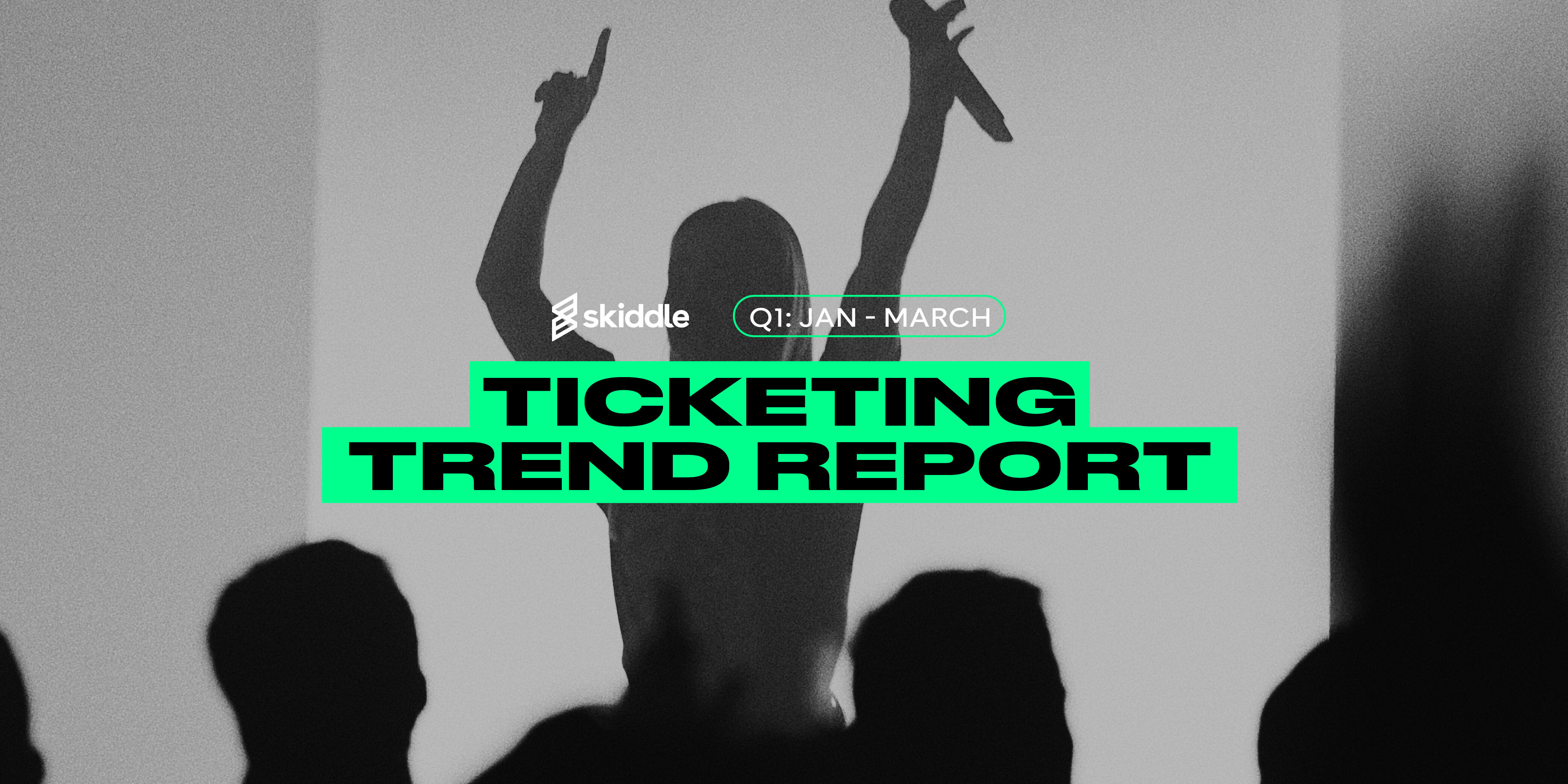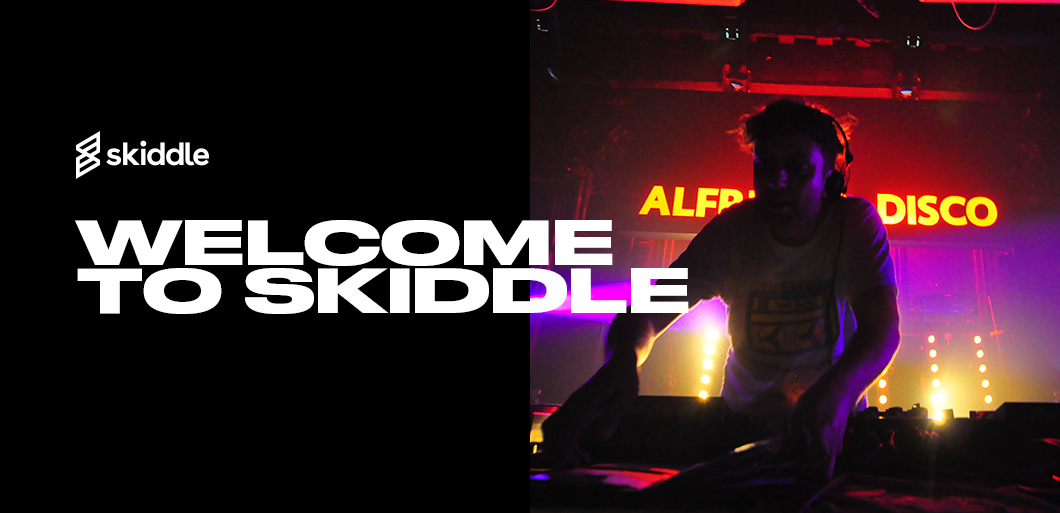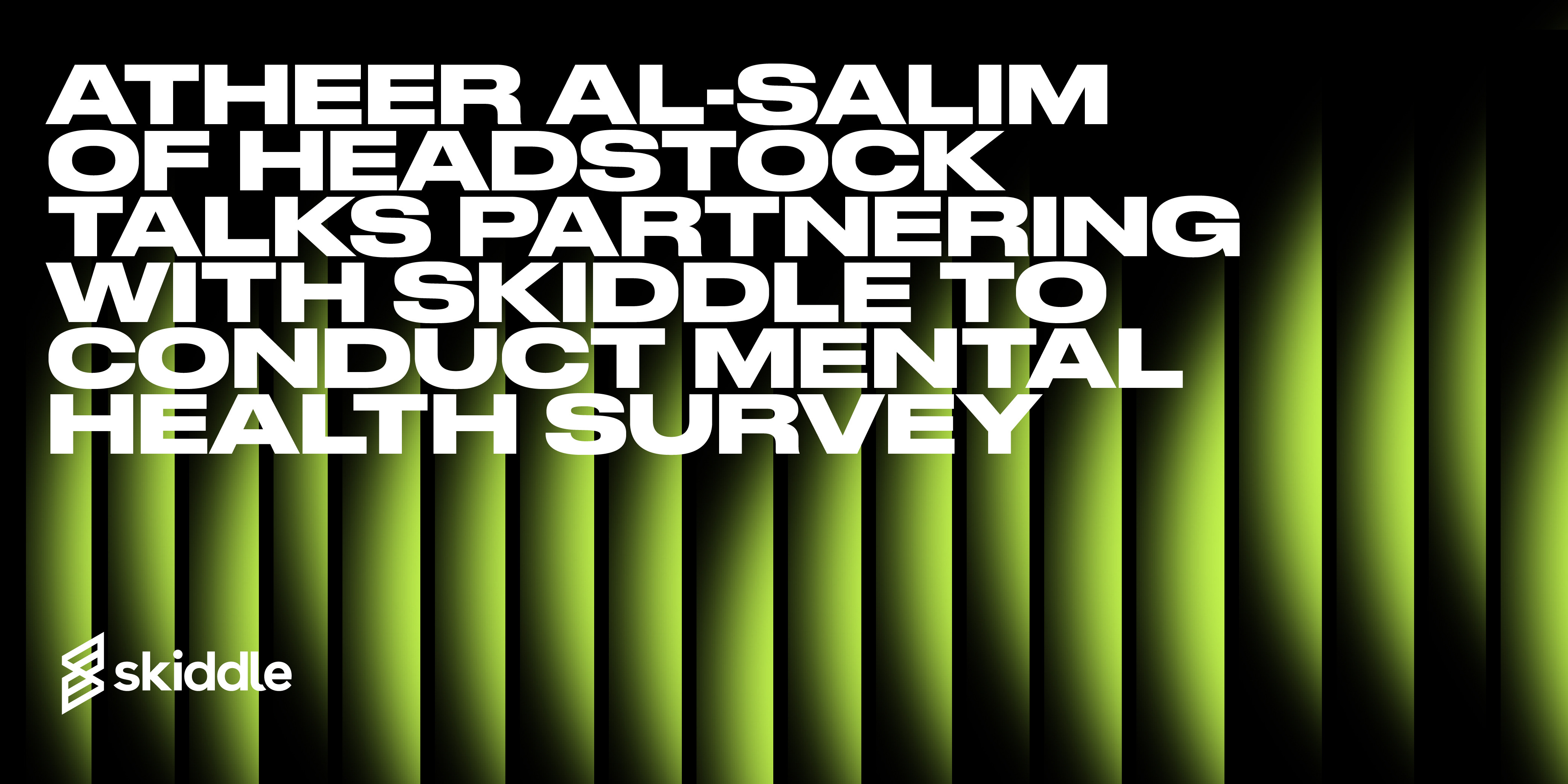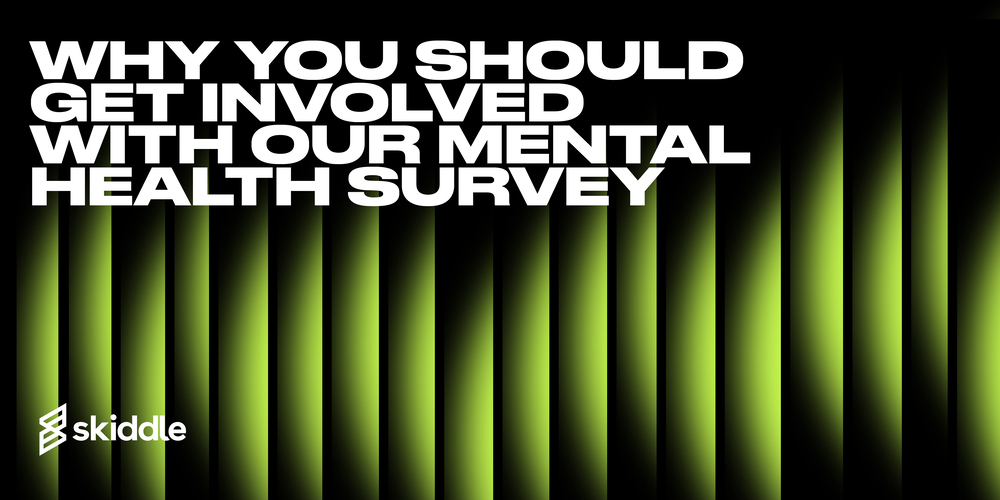- Behind the Scenes
What event industry professionals need to know about mental health
-
By Ryan Moss
- 18 May 2023
- 10 min read

“How are you feeling?”
At one time, the likely response would’ve been:
“I’m good, thanks.”
But over the past few years? There’s been a change when it comes to mental health. We’ve become more aware of the effects of depression and anxiety. It’s not uncommon to hear people speak candidly about their experiences, and on the whole, we’re talking more about how our surroundings affect what goes on in our brains.
That’s reflected in the statistics. According to Mind, 1 in 4 people will experience a mental health problem of some kind each year. The idea of self-care, and the ways in which people maintain it, have become staples in our vocabulary. Exercise and limited alcohol consumption are encouraged. Schools, colleges, universities and companies have adapted their policies to reflect how the conversation has changed.
It’s not perfect, but we’ve come a long way.
Waiting lists for treatment soars year on year, while more complex conditions like borderline personality disorder, schizophrenia and psychosis don’t feel as prominent in the discussion.
The statistics from Mind are from a particular sample size, which skews them slightly. They conducted the survey back in 2014, looking at people who were 16 and over, lived in private housing, and lived in England.
Hospital patients, prison inmates and unhoused people weren’t part of the survey, so the figures are likely higher. We’ve experienced the pandemic and are living through a cost-of-living crisis. These two things have undoubtedly affected the mental health of Britain’s society.
People in the events industry face mental health challenges too. What we experience in our personal lives can affect our work, and there are industry-specific problems that can arise as well. We’re going to take a look at some of them in this piece.
A look at mental health statistics in the events industry
The points we’ve made here are anecdotal, so it’s helpful to look at the statistics.
In 2021, The University of Herefordshire published a study titled ‘Stress, mental health and well-being in the events industry’. The researchers interviewed 12 people in the industry, and 205 people took part in an online survey.
22% of participants of the online survey had job titles listed as Account Manager/Event Co-Ordinator/Account Executive, while 19% had job titles listed as Account Director/Producer/Buyer/Sales Manager

15% of participants in the online survey worked in the creative industries, 14% at venues and 4% worked in festivals and public events.
Participants were asked to rate their stress levels on a scale of 1-10, with 40% rating stress levels at 8. That’s the highest number on the chart.
The four most common stress factors? Missing social life, with 97 responses. Lack of control, with 83 responses. Pure level of workload, with 78 responses, and long hours with 69 responses.
So, we can see that stress levels are high in the events industry. But how can we help to change that?
What can be done to alleviate issues?
With something like mental health, there needs to be a balance.
Companies have to create an environment where people feel safe enough to be open about their mental health if they want to. On the flip side, employees have to make sure they can look after their own mental health.
But you can’t have one without the other.
For example, people need time to rest, recharge and pursue their hobbies outside of work. They can’t do that if they’ve worked long hours in the week and helped out on weekends for three months on the bounce.
Similarly, freelancers need to be paid. But if the person on the other end is playing hardball, how can they get their money?
Let’s take a look at some of the ways both sides can help this issue.
For senior staff, management and heads of department
Praise your staff
If your team is doing a good job, let them know.
Whether it’s going above and beyond to achieve something, securing a big-name booking or delivering on their assignment, your encouraging words will go a long way.
In 2022, YouGov found that 57% of study participants criticise themselves more than others criticise them. It wasn’t event industry-focused, but you or someone you know has likely experienced this.
Deserved praise can help combat imposter syndrome, leading to increased confidence and better working relationships.
Give people the tools
A bricklayer can’t build a house without bricks.
An event coordinator can’t deliver an idea without the necessary people around them.

So, if you’ve got a cracking idea, don’t put all the responsibility on one person. Go through the idea and let them know if they need help, it’s there.
That might be emotional support, extra staff, or a friendly nudge to other team members to get stuck in and help out.
Ensure freelancers get paid on time
We’ve all heard horror stories of people waiting for ages to receive pay for their work.
Now, we understand: you might not be the person dealing directly with the transfer of money. But if you’re in a position of seniority, you can help speed up the process.
Communicate well with your freelancers. It’ll play a part in making sure people feel like they can speak freely about issues around pay, and in turn, make sure no one is struggling for food and bills at the end of the month.
For entry, mid-level and staff who aren’t in senior roles
Don’t compromise on your limits
In our industry, the lines between work and play are blurred.
Feeling tired, burnt out or in need of a rest? Don’t keep the candle burning at both ends. You can attend the networking function, have a good time, speak to who you need to and leave early.
You’ll have time to wind down and produce better work in the long run.
Be your own best friend
Think about what you’d like your best friend to tell you in a time of need.
Whether it’s words of encouragement, comfort or some tough love, write it all down and tell it to yourself.
It can help foster a positive self-image, combat imposter syndrome and boost your confidence.
Have a support network
Sometimes you can’t be your own best friend all the time. It’s not how humans work.
So, try to spend time with trusted friends and family.

If you’ve got shared interests, put some time aside and plan to see them. This can take your mind away from hectic periods, and you’ll probably end up telling them what’s on your mind too.
It’ll take the weight off your shoulders.
Who’s doing interesting things regarding mental health in the events industry?
Getahead
Getahead was set up by Jenni Cochrane. In 2018, they set out to positively impact a billion people in the next 25 years. In 2021, they hosted a festival with talks on how to implement well-being policies.
Find them here.
Music Minds Matter
Music Minds Matter was set up by Help Musicians. They provide support to musicians and people working in the creative industries through helplines, videos and more.
Find them here.
Blackout
Headed up by DJ and promoter Kwame Safo in collaboration with Mixmag, Blackout gives a space for Black artists and industry professionals to write about problems they’ve faced and uncover previously underrepresented movements.
Find them here.
Conclusion
So, what have we learned?
First up, event brands must create conditions for their staff to have good mental health.
Next, you don’t always have to talk to feel good. Staff may already have a support network, so focus on how you can balance their workload and give them time to do things outside of work. Again, it’s a balance. If you force people to talk, they’ll be put off, so let them know the support is there if they need it and don’t over face them with work.
Finally, everyone wins when you commit to these practices. Staff feel confident, energised, have time and space to live a full life, and you get great work from them.
Got a question you need an answer to? Give us a call on 03333010301 or ask us a question over on the Skiddle Promoter Twitter account by clicking or tapping on the button below. Alternatively, you can also find a list of our most frequently asked questions over at https://help.promotioncentre.co.uk/








